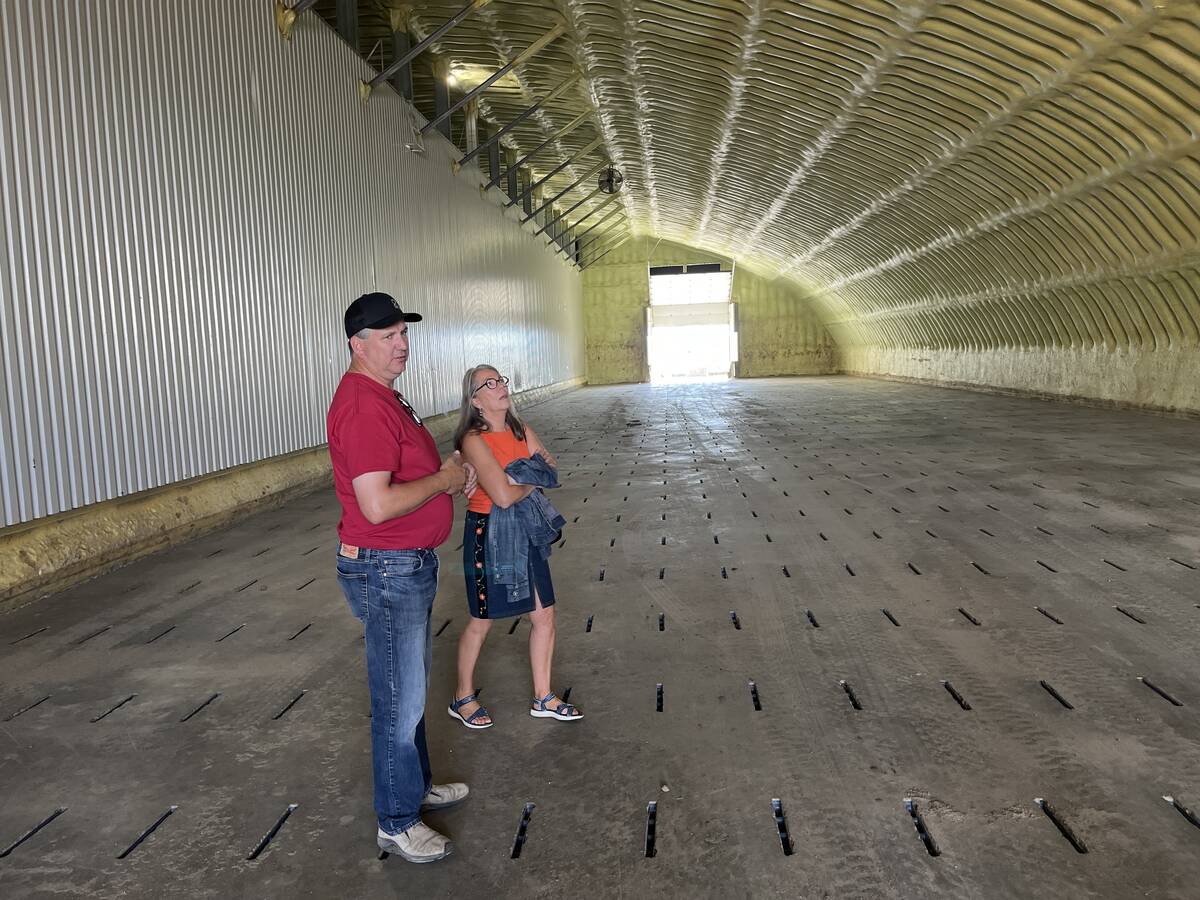After Douglas Harkness died recently in Calgary at age 96, the former federal agriculture minister was remembered in the House of Commons as a soldier-lawyer who helped farmers.
He served as John Diefenbaker’s first agriculture minister, 1957-60, during a period when a series of key agricultural programs were established.
“One of his legacies as minister of agriculture was to bring a degree of stability to agriculture by establishing the Prairie Farm Assistance Act,” justice minister Anne McLellan said June 1.
“He maintained his attachment to the land and was very proud of it.”
Read Also

Potato farm requires year-round management
The most recent Open Farm Day in Alberta showcased agricultural producers across the province educating the general public about the process that is required is to get food to their table.
During his term, the Farm Credit Corp. was established, the Crop Insurance Act was passed, advance payment legislation became law and the Agricultural Stabilization Act created a floor price for some commodities.
Even though Harkness represented a Calgary constituency, “he continued to file his income tax as a proud farmer,” said McLellan.
But politicians and farm leaders who were active 40 years ago offered mixed reviews of his term as Canada’s 16th agriculture minister.
Alvin Hamilton, who replaced Harkness in 1960, his predecessor quickly became a captive of his
bureaucrats.
“He was a hard working guy, a straightforward guy, a military type,” said Hamilton. “But he followed the bureaucrats and they weren’t going anywhere so he wasn’t going anywhere.”
Doug Fisher, a CCF MP in that Parliament and later a journalist, said Harkness made few friends as agriculture minister.
“It was hard to tell what emotions the guy had,” said Fisher. “He had a certain stiffness to him. The general feeling was he did the routine things. There was a strong deputy minister and the feeling was Harkness did not rock the departmental boat.”
But Alf Gleave, president of the Interprovincial Farm Union Council (later the National Farmers Union) in the late 1950s and later an NDP MP, has a different recollection.
He said in an interview he remembers Harkness as a “straight shooter” who started implementation of Diefenbaker’s more activist agricultural policies.
“I would say the Diefenbaker government provided farmers with more assistance than the Liberals had done and Harkness was there for that,” said Gleave. “I remember calling him from the Prairies to get a report on what was going on and he was a straight ahead kind of guy who would tell me.”
But Harkness is best remembered for a political decision he made three years after he left the agriculture portfolio.
The former war hero was shuffled to national defence from agriculture and it led him to break with Diefenbaker in 1963 over the issue of acquiring nuclear warheads for the Canadian military.
His decision to quit the cabinet when Diefenbaker refused the nuclear option led to the collapse of his Conservative government in 1963 and the election of the Liberals.
Harkness stayed in Parliament until 1972.
















